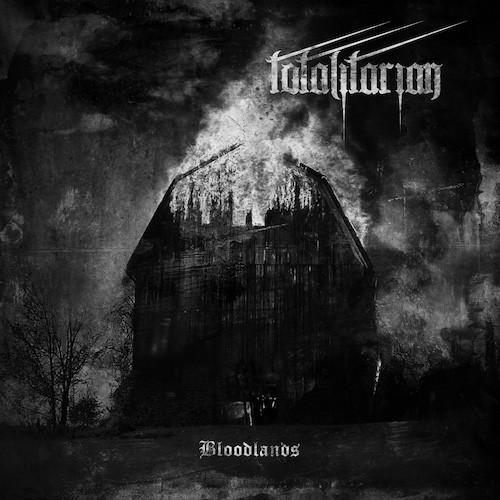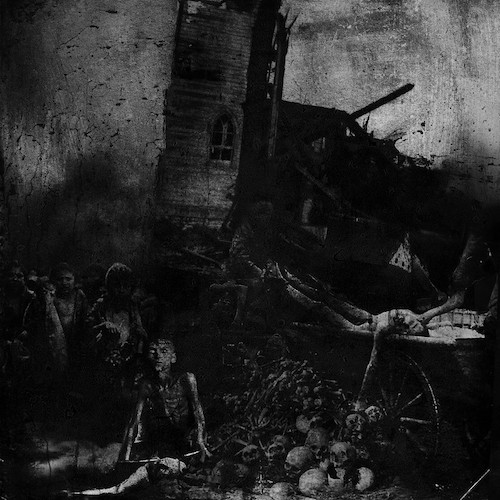Between about 1930 and 1945, in an area of Europe that included eastern Poland, Ukraine, Belarus, and the Baltic republics, approximately 14 million innocent people were shot, gassed, or intentionally starved to death. As if in the most grotesque competition imaginable, Stalin and Hitler shared responsibility for the mass slaughter, and more than half of it occurred outside the Nazi gas chambers and death camps, often in more obscure circumstances, in villages and the countryside. Both Jews and non-Jews were shot to death by the millions, simply penned like animals and deprived of food, or otherwise forced into famine. The scale is unimaginable; in Belarus alone, one quarter of its population were killed as a result of the convergence of these two brutal, totalitarian regimes.
The details of these mass exterminations were gathered together by Yale historian Timothy Snyder in a well-reviewed and award-winning 2010 book named Bloodlands – Europe Between Hitler and Stalin. To write it, he assembled an enormous mass of fresh research on Soviet and Nazi murder, much of it emerging from archives once sealed behind the Iron Curtain, and some of it his own, in order to produce, as one reviewer put it, “something like a final and definitive account” of these terrors.
It seems no coincidence that the Italian black metal band Totalitarian chose Bloodlands as the name of their new album, which will be released on April 12th by Barren Void (with distribution through Lavadome Productions). It too thematically focuses on the unprecedented and unequaled violence committed in that area in those years — not to celebrate what happened, but to use their music as a representation of the taste for humiliation and the instinct for annihilation that seems to have poisoned the consciousness of humankind in the past, and forevermore.
It’s an unmistakably bleak and nihilistic vision. As the press materials recount, “Bloodlands will drag you through the ruins of Warsaw, across the fields of Treblinka, into the marshes of Belarus, or to the death pits of Babi Yar”. It channels “the terror, the darkness without glare, when despair and anguish served just as an overture to a deadly end” — “the paralyzing touch of immaculate fear, the danger which can’t be seen, yet its menacing presence would define eternity with the taste of ashes and blood left behind”.
What kind of music confronts these abominations with the conviction that they represent something perpetual in human nature?
The first song released for listening from Bloodlands was the opening track, “1933“. In that year, it’s estimated that a famine intentionally caused by Stalinist programs killed between 3 million and 10 million Ukrainians (pinning down the precise number is now an impossibility). A steady, martial drum cadence and choral voices begin the track, but it soon becomes a terrorizing assault of heavy-caliber drum blasting and blazing, writhing, heaving riffs that seem to channel both vicious cruelty and extravagant agony, with scalding vocal tirades that are no less extravagant in their extremity. The explosive impact of the music is staggering; the rapidly morphing riffs sound like clarion calls of madness.
The song we present today, the album’s fourth track, is “Liberators“, which focuses on the slaughter that the Germans inflicted on non-combatants in Eastern Europe, including Belarus and the Baltics. In this instance, the rapidly tumbling percussion and gleaming guitars in the intro seem to portray moods of soul-plundering grief, but this song also ignites — in an effusion of tumultuous drumming and frenzied, mind-bending chords that feel like the collision of blood-lusting violence and mortal terror, of murderous barbarism and shattering fear and pain.
“Liberators” is an electrifying display of chaos, the work of instrumental speed demons operating in the red zone of their craft — but the trilling melody that surfaces at the end hints again at the mournfulness of the song’s opening.
The entire album is as powerful as these two songs, but also reveals further alluring nuances within Totalitarian‘s brand of nihilistic black metal. It is recommended for fans of Marduk, Zyklon B, Angelcorpse, Mayhem, Sammath, and early 1349.
ORDER:
http://store.lavadome.org
https://totalitarian666.bandcamp.com/album/bloodlands
TOTALITARIAN:
https://www.facebook.com/totalitarian.aeon
http://www.totalitarian666.bandcamp.com/
TRACK LIST:
01 1933 (4:32)
02 On The Wings Of The Great Terror (5:13)
03 Defeated, Destroyed And Divided (3:57)
04 Liberators (4:20)
05 Of Bullets And Gas (5:31)
06 Deathcult Eternal (2:28)



Huh, pretty ironic that it’s recommended for fans of Marduk and 1349, both being bands associated with nazi ideology. Or, if you feel that “associated” is too strong word to use, at least attracting the higher ratio of fans of this ideology than the average black metal band.
As far as I know, the recommendations were based on sound and musical style rather than ideology. I think it’s pretty obvious from this album that Totalitarian are not an NSBM band.
Wouldn’t that specifically be the strength in creating music that appeals to this demographic but presenting it with a different point of view? Preaching to the converted is fun and all but trying to pry your way into a closed mind is a much more interesting exploration.
That’s a bold claim you’re making right there. I’d like to see you back up that claim with some reliable sources.
Sure. I actually did do research before my post as I was also critical of what was being stated in this review but I found this interview that seems to confirm that the concept of the band is intended to educate people on these events so that they can see the tragedy and horror in them, not to glamorize them. http://absit-omen.com/totalitarian-2.html?fbclid=IwAR0fuYq5_yblDh9Jc3hE1k0oL9QowWF2c_1KkohpR_m2iRO1Nwn67M7mEHI
I think you misunderstood who I was responding to. My reply was actually to matt. What they write above – i.e. a serious and completely unsupported accusation that 1349 and Marduk are “associated with nazi ideology” – is what needs to be backed up by actual, trustworthy sources.
Apparently, text enclosed in angle brackets is ignored. What I actually wrote was “matt(numbers)”, but with angle brackets instead of parentheses.
Ah. Got it. Yeah I’m with you there.
Snyder is a genius, one of the world’s great living historians. I work with one of his former students. She, too, is brilliant and looks at this part of history. Another great tome is Masters of Death: The SS-Einsatzgruppen and the Invention of the Holocaust, by Richard Rhodes. Rhodes is world class journalist and Pullitzer Prize winning historian.
The artwork is PHENOMENAL, and might be Jedwabne…?
This music is fucking awesome.
You’re full of surprises. 🙂 And that Rhodes book looks like a great companion to Snyder’s.
Handling the official distribution of Totalitarian through Lavadome Productions, I would say one thing. Those who primarily express and project their political stances into music are degrading and violating what’s the very core essence of art to me and dealing with such is completely out of my concern.
Most importantly, I would like to express a big gratitude to Islander and also the man behind the PR, who both have enough of intelligence and critical thinking to be comfortable with promoting this record. It takes in fact a heroic courage these days as I can see. We already heard stuff like “this should not be in circulation” etc…. How Nazi/Commie is actually that.
P.S. Wait till you read the lyrics along with the music. It brings a profound experience. Definitely not nice but no one is here to glamorize the currents that Bloodlands deals with.